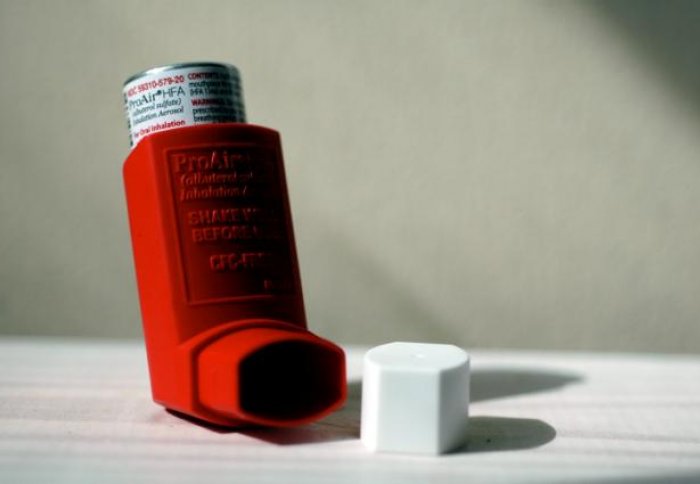Mechanism found for reduced effectiveness of corticosteroid treatment in asthma

New mechanism discovered behind reduced effectiveness of corticosteroid treatment in patients with severe asthma by Dr Pankaj Bhavsar and colleagues.
Dr Pankaj Bhavsar, Prof Fan Chung and their team at the Airway Disease section of NHLI have been looking at why corticosteroid treatment is less effective in people with severe asthma. Asthma is a common affliction of people worldwide, and although deaths caused by the disease have fallen significantly there are still strong consequences for people living with severe asthma. This most recent study from Chang et al. focuses on whether a problem with the glucocorticoid receptor is causing the corticosteroid treatment to be ineffective in patients with severe asthma, by supressing its ability to reduce the inflammatory response in airway smooth muscle cells.
Bronchial smooth muscle had already been shown to have a correlation with respiratory function, but this research was able to describe a new mechanism of glucocorticoid resistance specific to severe asthmatic bronchial smooth muscle cells. The study found reduced glucocorticoid receptor expression in airways smooth muscle in severe and non-severe asthma suffers, and impaired nuclear translocation induced by dexamethasone; in fact 40% lower than in other subjects. Both these findings may be important in explaining the reduced effectiveness of corticosteroid treatment in patients with severe asthma. It was also demonstrated that in severe asthma sufferers glucocorticoids are unable to suppress the recruitment of pro-inflammatory transcription factor p65 to the gene promoters.
Having had their paper ‘Impaired nuclear translocation of the glucocorticoid receptor in corticosteroid-insensitive airway smooth muscle in severe asthma’ published in The Blue Journal in January, and covered in its editorial, it has been chosen as a news story this month for the Journal of Allergy and Clinical Immunology (JACI), as well as being recommended on F1000 Prime. The findings of the study point to the need to develop treatments specifically for severe asthma through targeting smooth muscle.
Dr Bhavsar commented on his findings “Our study describes a new mechanism for corticosteroid insensitivity specific to the airway smooth muscle of patients with severe asthma that involves impaired nuclear translocation of the glucocorticoid receptor. Future studies will focus on identifying the mechanisms underlying this impaired translocation with an aim to finding new therapeutic targets to overcome corticosteroid resistance, and halt or reverse smooth muscle remodelling, in severe asthma”.
Article text (excluding photos or graphics) © Imperial College London.
Photos and graphics subject to third party copyright used with permission or © Imperial College London.
Reporter
Ms Helen Johnson
Communications Division